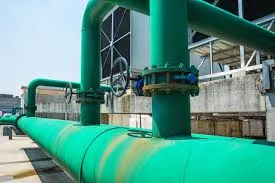
-
 Afrikaans
Afrikaans -
 Albanian
Albanian -
 Amharic
Amharic -
 Arabic
Arabic -
 Armenian
Armenian -
 Azerbaijani
Azerbaijani -
 Basque
Basque -
 Belarusian
Belarusian -
 Bengali
Bengali -
 Bosnian
Bosnian -
 Bulgarian
Bulgarian -
 Catalan
Catalan -
 Cebuano
Cebuano -
 China
China -
 China (Taiwan)
China (Taiwan) -
 Corsican
Corsican -
 Croatian
Croatian -
 Czech
Czech -
 Danish
Danish -
 Dutch
Dutch -
 English
English -
 Esperanto
Esperanto -
 Estonian
Estonian -
 Finnish
Finnish -
 French
French -
 Frisian
Frisian -
 Galician
Galician -
 Georgian
Georgian -
 German
German -
 Greek
Greek -
 Gujarati
Gujarati -
 Haitian Creole
Haitian Creole -
 hausa
hausa -
 hawaiian
hawaiian -
 Hebrew
Hebrew -
 Hindi
Hindi -
 Miao
Miao -
 Hungarian
Hungarian -
 Icelandic
Icelandic -
 igbo
igbo -
 Indonesian
Indonesian -
 irish
irish -
 Italian
Italian -
 Japanese
Japanese -
 Javanese
Javanese -
 Kannada
Kannada -
 kazakh
kazakh -
 Khmer
Khmer -
 Rwandese
Rwandese -
 Korean
Korean -
 Kurdish
Kurdish -
 Kyrgyz
Kyrgyz -
 Lao
Lao -
 Latin
Latin -
 Latvian
Latvian -
 Lithuanian
Lithuanian -
 Luxembourgish
Luxembourgish -
 Macedonian
Macedonian -
 Malgashi
Malgashi -
 Malay
Malay -
 Malayalam
Malayalam -
 Maltese
Maltese -
 Maori
Maori -
 Marathi
Marathi -
 Mongolian
Mongolian -
 Myanmar
Myanmar -
 Nepali
Nepali -
 Norwegian
Norwegian -
 Norwegian
Norwegian -
 Occitan
Occitan -
 Pashto
Pashto -
 Persian
Persian -
 Polish
Polish -
 Portuguese
Portuguese -
 Punjabi
Punjabi -
 Romanian
Romanian -
 Russian
Russian -
 Samoan
Samoan -
 Scottish Gaelic
Scottish Gaelic -
 Serbian
Serbian -
 Sesotho
Sesotho -
 Shona
Shona -
 Sindhi
Sindhi -
 Sinhala
Sinhala -
 Slovak
Slovak -
 Slovenian
Slovenian -
 Somali
Somali -
 Spanish
Spanish -
 Sundanese
Sundanese -
 Swahili
Swahili -
 Swedish
Swedish -
 Tagalog
Tagalog -
 Tajik
Tajik -
 Tamil
Tamil -
 Tatar
Tatar -
 Telugu
Telugu -
 Thai
Thai -
 Turkish
Turkish -
 Turkmen
Turkmen -
 Ukrainian
Ukrainian -
 Urdu
Urdu -
 Uighur
Uighur -
 Uzbek
Uzbek -
 Vietnamese
Vietnamese -
 Welsh
Welsh -
 Bantu
Bantu -
 Yiddish
Yiddish -
 Yoruba
Yoruba -
 Zulu
Zulu
Innovative FRP Desalination Solutions for Enhanced Water Treatment Efficiency and Reliability
Efficient Water Treatment The Role of FRP Desalination Pipes and Fittings
In the face of global water scarcity, desalination has emerged as a viable solution to provide fresh water from saline sources. As cities and nations increasingly turn to this technology, the demand for effective materials in the construction of desalination plants becomes paramount. One such material that has gained prominence in recent years is Fiberglass Reinforced Plastic (FRP). FRP pipes and fittings offer a multitude of advantages for efficient water treatment, particularly in desalination processes.
FRP is a composite material made of a polymer matrix reinforced with glass fibers. This combination results in a lightweight, strong, and corrosion-resistant material that is ideal for applications in harsh environments, such as those encountered in seawater desalination. Traditional materials like steel and concrete often suffer from corrosion when exposed to saltwater, leading to increased maintenance costs and decreased service life. In contrast, FRP pipes and fittings are inherently resistant to corrosion, thus significantly extending their operational lifespan and reducing long-term costs.
One of the key advantages of FRP in desalination systems is its flexibility and ease of installation. The lightweight nature of FRP allows for quicker and more efficient installation, minimizing downtime during construction. This is particularly beneficial in large-scale desalination projects, where time and cost efficiency is critical. Additionally, the flexibility of FRP makes it easier to work with, as it can be molded into various shapes and sizes to fit specific design requirements.
frp desalination pipes and fittings for efficient water treatment ...

Furthermore, FRP pipes exhibit excellent thermal insulation properties, which is essential in desalination processes that often involve temperature variations. By minimizing heat loss, FRP materials can enhance the overall efficiency of thermal desalination methods, such as Multi-Effect Distillation (MED) and Multi-Stage Flash (MSF) desalination.
The structural integrity of FRP also plays a vital role in ensuring safety in desalination facilities. These pipes are designed to withstand extreme pressures, making them suitable for high-pressure applications often found in desalination plants. Additionally, FRP is resistant to biological growth, reducing the risk of blockages and maintenance issues related to biofouling, a common challenge in marine environments.
Moreover, FRP materials contribute to sustainability efforts in desalination. By reducing the need for frequent replacements and minimizing maintenance interventions, the environmental footprint associated with these operations is lowered. Furthermore, the energy-efficient properties of FRP systems help reduce the overall energy consumption of desalination processes, aligning with global goals for reducing greenhouse gas emissions.
In conclusion, FRP desalination pipes and fittings are instrumental in achieving efficient water treatment in desalination plants. Their resistance to corrosion, ease of installation, thermal properties, and structural integrity make them an ideal choice for modern desalination applications. As the world continues to face increasing water scarcity, adopting advanced materials like FRP will be crucial in developing sustainable and efficient solutions to meet the growing demand for fresh water. Investing in FRP technology can pave the way for more resilient and environmentally friendly desalination systems, ensuring a secure water future for generations to come.









